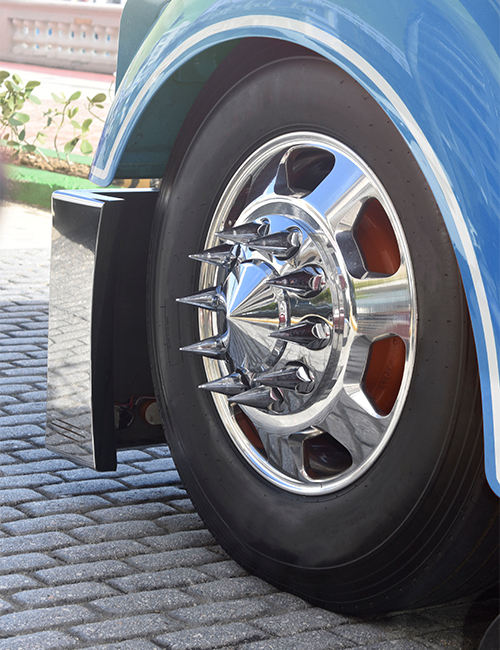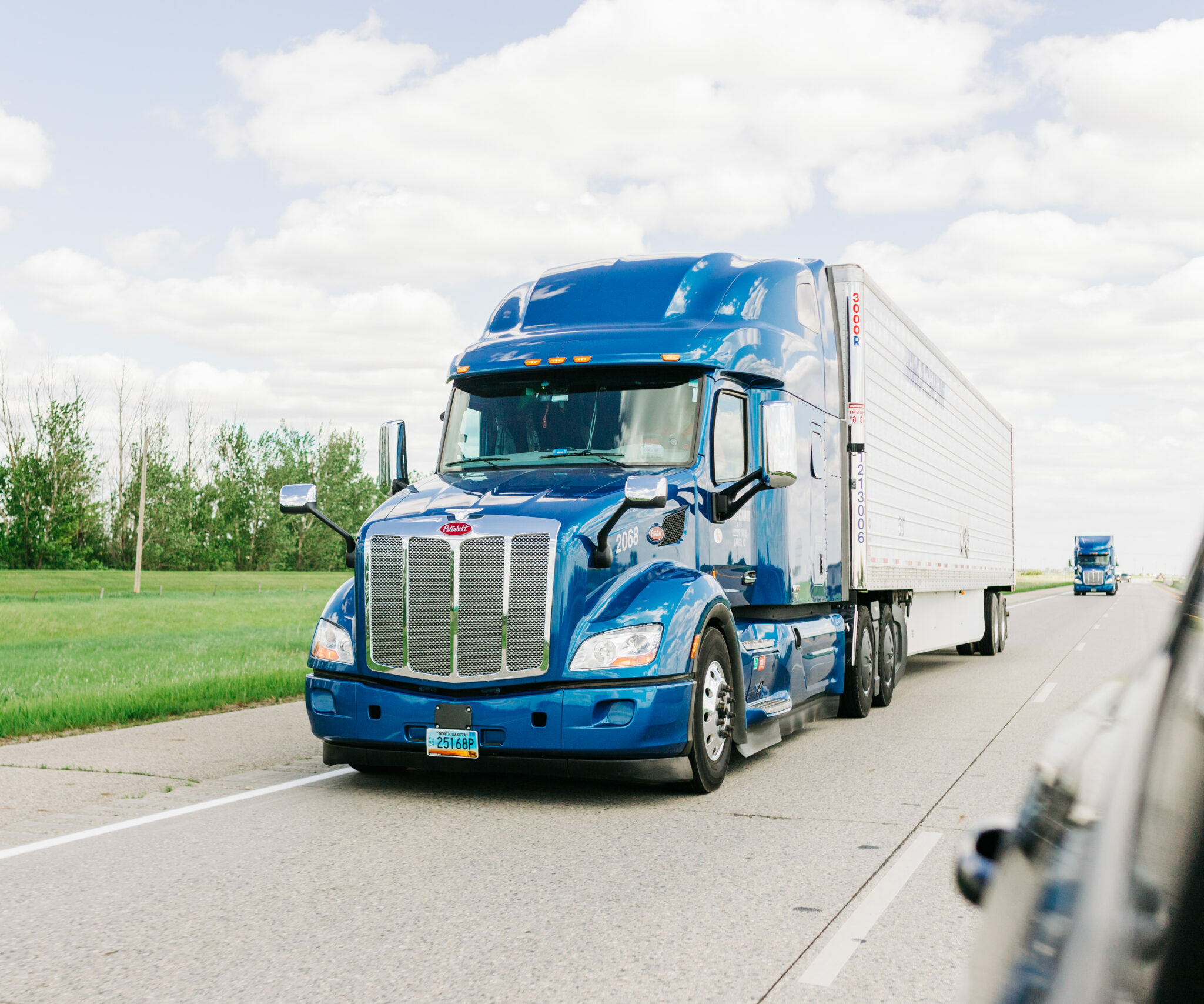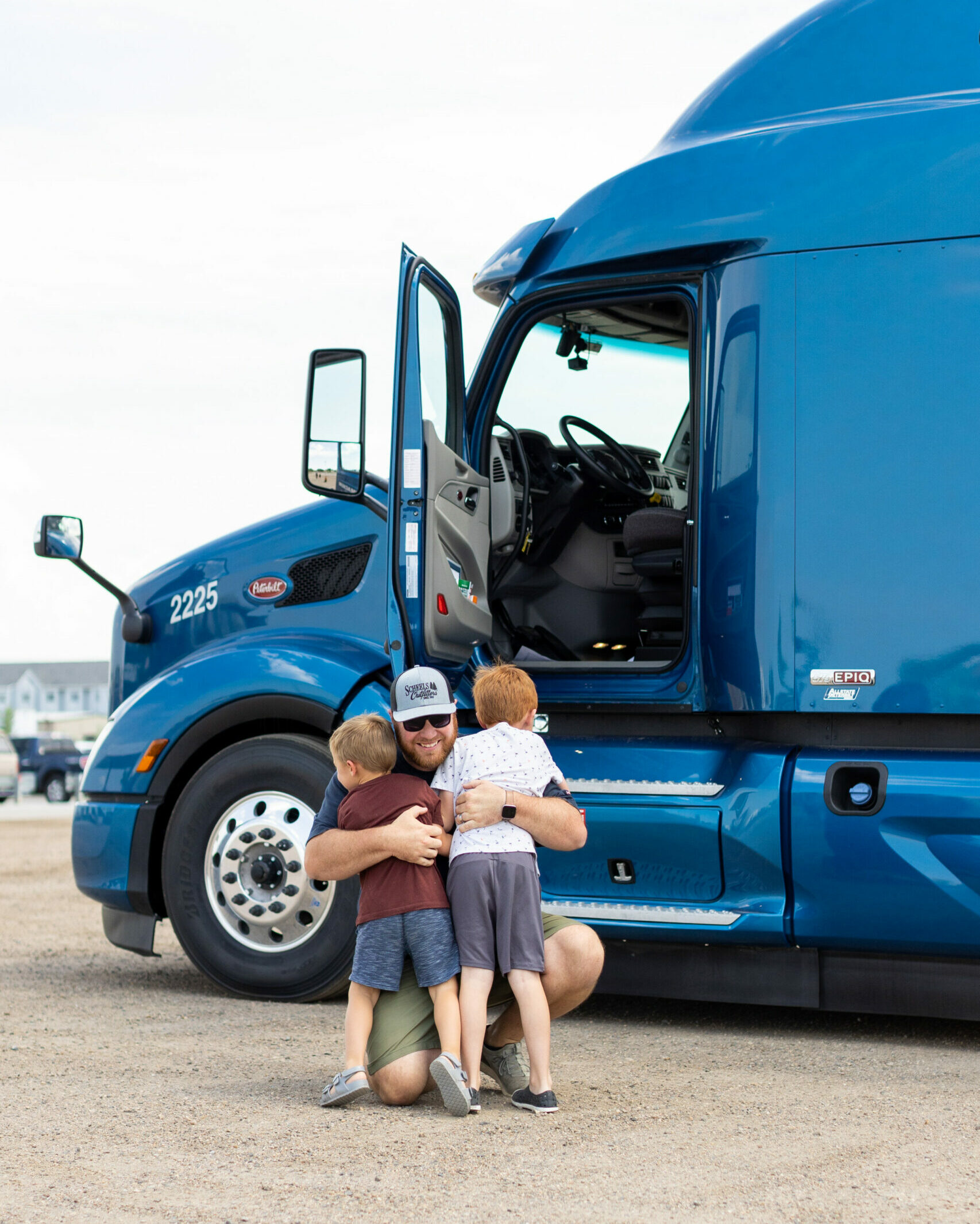MOST FREQUENTLY ASKED QUESTIONS ON GOOGLE
We took a dive into the most-asked Google Search questions regarding trucking, and we're here to help.Unless you’ve grown up around or in the trucking industry, trucking isn’t top-of-mind, common knowledge. Until I began working at Magnum, I knew .01% of what I know now. One could say that at one time, Google Search was my best friend when it came to answering my trucking questions.
Hopefully, we can answer YOUR trucking questions and more below!
Why do trucks have spikes on their rims?
As you drive down the highway, you may see a truck or two with a big set of spikes on the rims of their tires. So, why do trucks have spikes on their rims?
We came up with three reasons to answer this question:
a.) Spikes can act as protection for the wheel’s lug nuts, ultimately slowing down the wear and tear due to road conditions and use.
b.) They can act as a crash deterrant. Spikes are usually made of thin metal or plastic, which easily break off if hit. This can alert a driver before it’s too late.
and probably the most common reason…
c.) Drivers add them to their rims as a style piece for their truck. The spikes add character and are an easy way for drivers to customize their home away from home!

Why do trucks have to stop at weigh stations?
We all see them as we drive down America’s highways or Interstates. The weigh station signs, the lights saying ‘OPEN’, and the parade of trucks exiting off to a small building called a weigh station on the side of the road. What is a weigh station and why do trucks have to stop there?
The purpose of a weigh station is to assess a trucks weight. Here, Department of Transportation (DOT) inspectors and state highway patrols ensure that drivers are following state laws and safety guidelines, and make sure their trucks are not overweight. If a truck is overweight, it can cause irreparable damage to America’s roads and bridges that cannot handle the heavy load. Now you may ask, what happens if a truck DOESN’T stop at a weigh station when it’s open?
Most states only require trucks and commercial vehicles weighing over 10,000 pounds in gross weight to stop at weigh stations. But, those OVER 10,000 pounds who drive past without stopping should expect to see red and blue lights quickly approaching behind them. These drivers risk being pulled over by state troopers or law enforcement, ticketed, then made to return to the scale.
How much do trucks weigh?
Appropriately following the reasoning behind why trucks have to stop at weigh stations – this answer varies. There are two different measurements in calculating the weight of a truck: Axle Weight and gross weight.
Axle Weight measures the amount of weight carried by each tandem axle on a truck, while gross weight equals the combined weight of the load, trailer, tractor or pickup, and any added accessories carried by all the tandem axles.
A semi-truck, or tractor, without a trailer can weigh anywhere between 10,000 and 25,000 pounds, depending on size. A tracor hooked up to an empty trailer weighs around 35,000 pounds – picture 17 full-size Great White Sharks stacked on top of eachother. That’s a lot of sharks.
The legal weight limit for a loaded tractor-trailer in the United States is 80,000 pounds. If you want another analogy to help picture… think 40 fully-grown grizzly bears. I hope these analogies follow you out onto the road!
Why do truckers wear headsets?
Most of the time, headsets are associated with customer service representatives. Immediately, my brain recalls Flo, from Progressive Insurance television commercials. But truckers aren’t customer service reps, why do they have headsets?
As truckers drive the largest and heaviest vehicles down the road, distractions must be kept to a minimum. This is where headsets come into play. Their headsets function as their Weather Channel, their Google Maps, their Spotify and their cell phone. They stay connected with their driver manager for any updates through their headset, along with their loved ones to let them know that they’re safe.

Why do trucks park on on- and off-ramps?
Not commonly known by non-truck drivers, truckers are pretty heavily regulated on how many hours they can drive each day due to safety reasons. One more thing not commonly known by those not in the trucking industry – there is an extreme shortage of truck parking in the U.S. Typically, if you don’t find a truck spot by 8 p.m…. an on- or off-ramp is your next best bet.
Most, if not all truckers would definitely prefer a truck stop or rest area over parking on a ramp. Remember, truck drivers sleep in their trucks – it’s not an ideal situation to try to sleep when you’re sitting on a slope. Also, it’s dangerous to sleep on a ramp and some states even ticket drivers for doing so.
Where are a trucks blind spots?
This is one of those trucking questions we’re happy to see pop up on this list. If we’re being honest, truck drivers have blind spots everywhere. We mean everywhere.
Their BIGGEST blind spots are directly in front of their truck, directly behind and along each side. A great rule of thumb is that if you can’t see the trucks side mirrors, they cannot see you. Odds are, if you’re passing them, they also cannot see you. Driving a big rig comes with a lot of risks, so we’re asking you to please manuever carefully around America’s truck drivers. Here’s a few more tips on how to safely share the road.
Why do trucks drive slower?
This was one of the trucking questions that topped the list, and we understand why. Although we know it can be irritating to follow a slow-moving truck, there are a handful of reasons as to why big rig’s drive slower than smaller trucks and cars. The most common sense answer would be that of basic physics. Tractor-trailers are much heavier than the average vehicle on the road, meaning it takes a longer period of time to stop and go. Going up any sort of incline will slow a truck down way more than a car, along with manuevering around curves safely.
Trucks and commercial vehicles are more prone to rolling than regular vehicles. The added weight, whether it be liquid or solid freight, makes the truck more top-heavy than it already is. This means that especially around curves, truck drivers need to slow down to the posted speed to ensure safety. Believe me when I say, they’re in just as big of a hurry as you are – they’re just trying to make it to their destination in the safest manner possible.
The last reason that trucks drive slower than the average vehicle is because trucks are often governed; meaning they can’t go past a certain speed while driving. Companies typically govern their trucks for two reasons: safety, and fuel efficiency. Back to our physics lesson, slower-moving trucks take less time to slow down in emergency situations. This alone prevents many accidents and in turn, saves many lives on America’s highways. As for fuel efficiency – you can just about imagine how expensive fuel is for a 10,000-80,000 pound vehicle traveling at an average speed of 60 mph. Not only does governing trucks save money on gas, it reduces greenhouse emissions going into our atmosphere.
How much money do truckers make annually?
Again, this is a loaded question that has dependency on many different variables. Typically, pay depends on the type of driving job, amount of experience, bonuses and incentives, certifications, endorsements, and if it’s a niche or specialty hauling job. Many companies offer various bonuses to newly hired drivers, which means no driver earns the exact same as the next.
According to Indeed, the average annual salary for truck drivers in the United States is $68,140 per year. Magnum offers many bonuses, including a mileage bonus, safety bonus, idle bonus, Hazmat bonus, cruise bonus, and a $3,000 sign-on bonus to new drivers. If you’re interested, we encourage you to give our recruiters a call at (701) 297-6234!


What trucking company is the best to work for?
Some might counter that this is a wee bit biased… but Magnum is definitely the best trucking company to work for.
We’re a private-owned, veteran-owned company who truly cares about and appreciates our drivers. Magnum acknowledges the hard work and dedication it takes to be a truck driver in today’s world, and we do everything in our power to make sure our drivers feel valued.
Here at Magnum, everyone is family. To see what our drivers have to say, check out our Faces of Magnum section here in our blog. One of our OTR Driver Trainers, Majestic, holds close relationships with many people in our offices, even including our owners!
To sum it up, we truly value our drivers and what they do to keep America running. Life would look a lot more hectic without them!
Hopefully, we answered a few of your trucking questions along with others you may not have known you had. For any that we may have missed, message us on social media and we’d be happy to help. We can also bet – if you see a trucker and politely ask them your trucking questions (while thanking them for all they do), they’d be happy to help as well.
READ MORE
Explore more topics in our other blog posts.
Faces of Magnum: Earl Christmann
How to be a Friend on the Road
Faces of Magnum: Majestic Pounds










